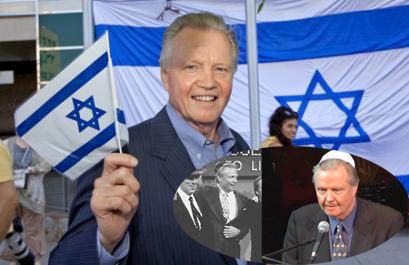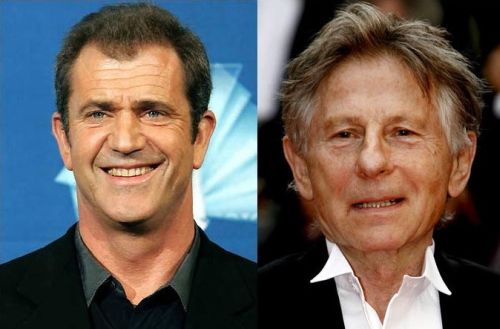JTR
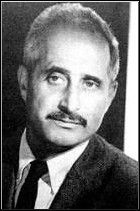 Marilyn Monroe is one of many Gentile actors who fell under the dominance of a string of Jewish psychoanalysts, including, most famously, Ralph Greenson (born: Romeo Greenschpoon) who was her therapist when she allegedly committed suicide. "Like many of his colleagues at the time," notes a review of Donald Spoto’s biography of Marilyn, "Greenson relied heavily on drug therapy for his patients, routinely prescribing barbiturates and tranquilizers or having patients’ other doctors do so. He referred Marilyn to [Jewish] internist Hyman Engelberg, who prescribed many of the medications Greenson ordered for her … Her friends noticed that the more Marilyn saw Greenson, the more miserable she became … Greenson encouraged Marilyn’s deep dependency on him (he was seeing her twice daily)" (Good Housekeeping, 1993, pp. 212, 214). [Image: Ralph Greenson.]
Marilyn Monroe is one of many Gentile actors who fell under the dominance of a string of Jewish psychoanalysts, including, most famously, Ralph Greenson (born: Romeo Greenschpoon) who was her therapist when she allegedly committed suicide. "Like many of his colleagues at the time," notes a review of Donald Spoto’s biography of Marilyn, "Greenson relied heavily on drug therapy for his patients, routinely prescribing barbiturates and tranquilizers or having patients’ other doctors do so. He referred Marilyn to [Jewish] internist Hyman Engelberg, who prescribed many of the medications Greenson ordered for her … Her friends noticed that the more Marilyn saw Greenson, the more miserable she became … Greenson encouraged Marilyn’s deep dependency on him (he was seeing her twice daily)" (Good Housekeeping, 1993, pp. 212, 214). [Image: Ralph Greenson.]
The incestuous nature of Hollywood life may be observed in Greenson’s case: his sister Elizabeth was married to Milton ‘Mickey’ Rudin, a Jewish entertainment attorney who was one of the town’s major powerbrokers. Rudin was Monroe’s lawyer.
Marilyn’s publicist, Arthur Jacobs, was also Jewish. So were her agents at MCA, Jay Kanter and Mort Viner. Many of the directors of her films were Jews (for example, Billy Wilder of Some Like It Hot and George Cukor of Let’s Make Love). Natasha Lytess, her personal manager and the subject of speculation about Monroe’s rumored lesbianism, was Jewish, from Austria. Their relationship, says Barbara Leaming, was "mutually exploitive" (Leaming, 31). Milton Greene, a Jewish fashion photographer "with whom she’d reportedly had a fling during the late forties," was another early personal manager.
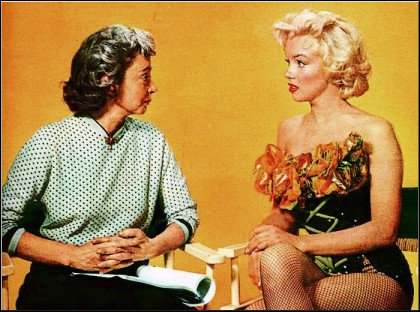 |
Monroe had resolved to sleep with anyone who could help her attain fame and fortune in Jewish-dominated Hollywood. Close friend Ted Jordan notes that she had "sex with anybody she thought might be able to advance her career" (Jordan, 121). "It is clear," says Anthony Summers in his biography, "that Marilyn made judicious use of her favors. A key beneficiary was the [Jewish] man who got Marilyn that vital first contract at Fox — Ben Lyon. According to writer Sheila Graham, Lyon had been sleeping with Marilyn and promising to further her career … Lyon called the casting director for Sol Wurtzel, a [Jewish] B-movie producer of the time [and Monroe was awarded a small part in the 1947 film Dangerous Years]" (Summers, 35).
In olden times," Upton Sinclair once remarked, "Jewish traders sold Christian girls into concubinage and into prostitution, and even today they display the same activity in the same field in southern California where I live." Or as F. Scott Fitzgerald summed up the Hollywood scene of his era — "a Jewish holiday, a Gentile tragedy" (Gabler, 2).
Garment millionaire Henry Rosenfeld was another Jewish sex partner on Marilyn’s road to fame. "She would join Rosenfeld at his home in Atlantic City for trips in his speedboat and for quiet evenings of talk and laughter" (Summers, 45). Jewish mobster Bugsy Siegel, himself a Hollywood powerbroker, also slept with her (Jordan, 84, 87). Ted Jordan (born Edward Friedman) even wrote a book about his early sexual experiences with Monroe — they began on his fourth date with her when she was 17. Then known by her real name, Norma Jean, Monroe was soon sleeping with Friedman’s uncle, Ted Lewis (original name also Friedman), who, "with his clarinet and distinctive style of old favorites, was among the hottest acts in show business" (Jordan, 73). It was Lewis who introduced the then-unknown model to narcotics.
"I learned," says Jordan, "that at one point in their little backstage meeting, Ted had slipped Norma Jean a piece of paper with his telephone number on it. Soon they were meeting in hotel rooms whenever Ted was in town … Soon he was pulling strings for Norma Jean, trying to hook her up with an agent who would do her the most good … As Norma Jean had vowed to me, whoever she had to frack, she was prepared to do it. And, for good measure, she did the same with [prominent Jewish gossip columnist] Walter Winchell" (Jordan, 75).
Early in Monroe’s career as a struggling actress, the Jewish head of Columbia, Harry Cohn, invited her to an overnight cruise on his yacht. Monroe was required to strip naked for Cohn in his office. As she bent over, at his direction, he approached her, penis in hand. When she declined his advances, said Monroe, "I had never seen a man so angry" (Jordan, 91; Wolfe, 211-212). Cohn then "banned her from the [Columbia] lot after she refused to accompany him on a yacht to Catalina Island" (Leaming, 8). "You know," Monroe once said, "that when a producer calls an actress into his office to discuss a script that isn’t all he has in mind … I’ve slept with producers. I’d be a liar if I said I didn’t" (Summers, 34-35). In 1955, 20th Century Fox awarded Monroe the richest per-film contract of any actress. "It means," remarked Monroe, "I’ll never have to suck another cock again!" (McDougal, 217).
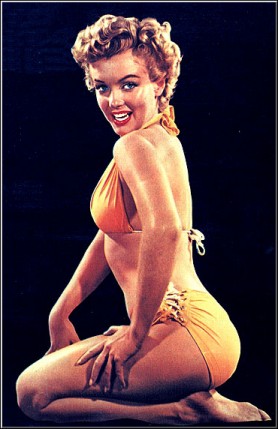 The network of Jewish men that controls Hollywood has always been characterized by an intense sexual fixation on the shiksa — shiksa being a derogatory slur for a Gentile woman, literally signifying "unclean animal" according to its Yiddish etymology. Hence the ubiquitous "casting couch," a Hollywood institution that provided Jewish powerbrokers access to otherwise unavailable non-Jewish women, whom they despised as non-Jews yet idealized as avatars of alien sexual desirability. The shiksa thus became the ultimate sexual trophy. The Jews who ruled Hollywood, noted Hollywood rabbi Edgar Magnin, "were men who made all that money and realized they were still a bunch of Goddamned Jews. Sleeping with a pretty gentile girl made them feel, if only for a few minutes, ‘I’m half gentile.’ No wonder they made idols out of shiksa goddesses." [Image: Marilyn in 1951.]
The network of Jewish men that controls Hollywood has always been characterized by an intense sexual fixation on the shiksa — shiksa being a derogatory slur for a Gentile woman, literally signifying "unclean animal" according to its Yiddish etymology. Hence the ubiquitous "casting couch," a Hollywood institution that provided Jewish powerbrokers access to otherwise unavailable non-Jewish women, whom they despised as non-Jews yet idealized as avatars of alien sexual desirability. The shiksa thus became the ultimate sexual trophy. The Jews who ruled Hollywood, noted Hollywood rabbi Edgar Magnin, "were men who made all that money and realized they were still a bunch of Goddamned Jews. Sleeping with a pretty gentile girl made them feel, if only for a few minutes, ‘I’m half gentile.’ No wonder they made idols out of shiksa goddesses." [Image: Marilyn in 1951.]
A key agent in accelerating Monroe’s early career was Johnny Hyde (like many Hollywood Jews, born in Russia, and a veteran of vaudeville.) She was also his mistress; he was 53, she was 23. Hyde "not so coincidentally … was Ted Lewis’ personal manager" (Jordan, 85). "In making Marilyn known," says Fred Guiles, "[Hyde] flexed a lot of muscle. The simple fact is that Johnny Hyde was the chief architect of her fame and her eventual legend" (Guiles, 147).
"By 1953," Jordan reports, "… [Monroe] could be virulently anti-Semitic (a prejudice that grew as she got older). To my discomfort she would sometimes refer to Joe Schenck, the mogul [and another sexual stepping stone], as ‘that Jew poop’ and to other Hollywood personalities as ‘Jew’ this or that. Occasionally I would have to remind her that I was half Jewish" (Jordan, 188). Monroe’s anti-Semitism did not prevent her from later converting to Judaism, at the behest of her Jewish husband, playwright Arthur Miller, who (despite his vocal anti-racialism) would not wed an uncoverted Gentile.
The Hollywood world and its pressures of being a sex goddess of course destroyed her. Monroe’s physician Hyman Engelberg and her therapist Ralph Greenson were the first to her death scene, reported to be the result of a drug overdose, but they did not call police for four hours. One investigative author, Donald Spoto, in a 1993 work, even burdens Greenson with the responsibility for killing her, directing that a female employee "administer [to Monroe] … a fatal barbiturate-laced enema." (In this scenario, Greenson’s motivation was that Monroe was trying to free herself from his influence and control, and had fired him [Wolfe, 99]).
A friend of Monroe’s recalls that she was beginning to feel that Greenson was "trying to substitute himself for everything she’d built up those past years. She decided he was anti-everything she wanted. She was radically turning on Greenson and Mrs. Murray, the woman he’d put with her, she felt, to spy on her" (Strasberg, 250-251).
The famous movie star’s alleged suicide has always been controversial, and there are various conspiracy notions about who would want her dead. Greenson’s secret life is much clouded. As well as being a therapist, he was an activist Communist Party member and part of its international Comintern. Greenson, as his sister Elizabeth has reported, was also a Zionist with "strong ties to Israel" (Kelley, 305).
Whatever Greenson’s role as a listener of movie star’s confessions, his communist ties have profound implications because Monroe had romantic affairs with President John F. Kennedy and knew a great deal about behind-the-scenes politicking, perhaps including plans against communist Cuba and Fidel Castro. Everything Monroe knew she undoubtedly told her psychotherapist. As Donald Wolfe writes:
Once Marilyn Monroe became Greenson’s patient, he became one of the most important Comintern operatives in America; he had access to the mind of a woman who often shared the bed with the president of the United States and was an intimate of the attorney general [Kennedy’s brother, Robert] … As Greenson has correctly stated, Marilyn Monroe had a tendency to ‘get involved with very destructive people, who will engage in some sort of sado-masochistic relationship with her.’ Ironically, among these people was her psychiatrist [Greenson], her physician [Engelberg], and her housekeeper, Eunice Murray [who was appointed by Greenson to live with Ms. Monroe and report back to him], who joined in a conspiracy to survey Marilyn Monroe within a sphere of influence designed to gather intelligence from her relationship with the president of the United States and the attorney general (Wolfe, 386).
Marilyn Monroe’s road to psychoanalysis was directed by the influential Jewish acting teacher, Lee Strasberg, who is usually credited with spawning "method acting," made famous by the likes of Marlon Brando and James Dean. Brando’s first Jewish analyst, early in his career, was Bela Mittelman, "the coldest man I’ve ever known." … "Acting afforded me the luxury of being able to spend thousands of dollars on psychoanalysts, most of whom did nothing but convince me that most New York and Beverly Hills psychoanalysts are a little crazy themselves, as well as highly motivated to separate patients from their money while making their emotional problems worse" (Brando, 124, 243). Brando was not much endeared to Lee Strasberg either, calling him "an ambitious, selfish man who exploited the people who attended the Actors Studio, and he tried to project himself as an acting oracle and guru. Some people worshiped him, but I never knew why" (Brando, 85).
Strasberg’s daughter, Susan, notes that her father "sent numerous actors to psychiatrists, and many doctors sent their patients to class because they felt his work helped theirs in analysis" (Strasberg, 31). Susan Strasberg herself used to argue with Marilyn Monroe about whether she or the famous sex goddess "needed therapy more" (Strasberg, 138). As Barbara Leaming observes:
It was said that the master teacher Lee Strasberg could open inner doors that one scarcely knew existed. Some admirers called him the Rabbi. Some compared him to a psychiatrist or a highly judgmental Jewish father … Strasberg focused on psychology. He ran his workshop as though they were group therapy sessions… Strasberg often advised actors to enter psychoanalysis in order to put them in touch with emotionally-charged material they could use in their work" (Leaming, 156-157).
Under Lee Strasberg’s influence Marilyn became an earnest devotee not just of method acting, but of Freudian analysis as well. Monroe’s one-time husband, Jewish playwright Arthur Miller, also had his own Jewish psychoanalyst: Rudolph Loewenstein. Monroe even had sessions with Sigmund’s Freud daughter, Anna, also a therapist, in London. "The significance of [Monroe’s reliance on psychoanalysts] for psychoanalysis," notes Jeffrey Moussaieff Masson, "was that Monroe left a substantial part of her estate to further the work of Anna Freud, whom she had seen briefly for analytic help in 1956 (Anna Freud wrote about her that she was paranoid with schizophrenic traits), and this bequest was undoubtedly achieved through her analysts, who were intimately connected to Anna Freud" (Masson, 129).
As Masson, a former offical at the Sigmund Freud Archives, further notes about the ethical undercurrent of such funding:
It is not, in fact, uncommon for analysts to solicit, usually through roundabout methods, former patients for money to support analytic projects. Chairs of psychoanalysis in medical schools at various universities have been partially endowed through former patients. There was also the case of the Centenary Fund, named for the centenary, in 1956, of Freud’s birth. [Marilyn Monroe’s therapist Ralph] Greenson had organized this fund for psychoanalytic research in Los Angeles … I felt then, and still do now, that it is an exploitation of the emotional relationship with a patient to solicit money, in whatever form, directly or indirectly. It seems to me that the patient, or ex-patient, is in no position, emotionally speaking, to refuse … I find it wrong and morally distasteful" (Masson, 130).
A Monroe friend once stated that "I felt [Ralph Greenson] had a big ego, like a lot of doctors he wanted to be God, and of all the analysts in L.A. she found him. Inger Stevens was his patient too. She killed herself later" (Strasberg, 250).
As Greenson once claimed, "I can count [on] Marilyn to do anything I want her to do" (Wolfe, 422).
Works Cited
Brando, Marlon. Brando: Songs My Mother Taught Me. Random House, Toronto, 1994.
Gabler, Neal. An Empire of Their Own: How the Jews Invented Hollywood. Crown Publishers. New York, 1988.
Good Housekeeping. "Marilyn Monroe." May 1993, pp. 162-163, 212-216.
Guiles, Fred Lawrence. Legend: The Life and Death of Marilyn Monroe. Stein and Day, New York, 1989.
Jordan, Ted. Norma Jean: My Secret Life with Marilyn Monroe. William Morris & Co., New York, 1989.
Kelley, Kitty. His Way: The Unauthorized Biography of Frank Sinatra. Bantam Books. New York, 1986.
Leaming, Barbara. Marilyn Monroe. Crown Publishers, New York, 1998.
Masson, Jeffrey Moussaieff. Final Analysis: The Making and Unmaking of a Psychoanalyst. Addison-Wesley, New York, 1990.
McDougal, Dennis. The Last Mogul: Lew Wasserman, MCA, and the Hidden History of Hollywood. Crown Publishers, New York, 1998.
Strasberg, Susan. Marilyn and Me: Sisters, Rivals, Friends. Warner Books, New York, 1992.
Summers, Anthony. Goddess: The Secret Lives of Marilyn Monroe. MacMillan, New York, 1985.
Wolfe, Donald H. The Last Days of Marilyn Monroe. William Morrow, New York, 1998.
The preceding text is excerpted and edited from When Victims Rule, online at Jewish Tribal Review. The title is editorial.

